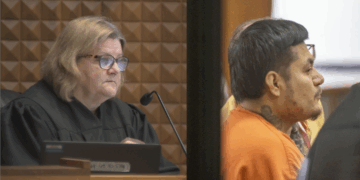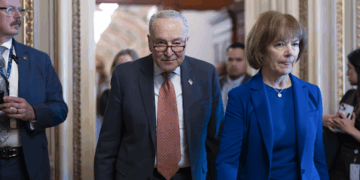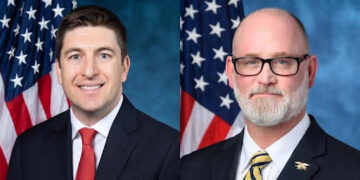After Charlie Kirk’s assassination launched the country into shock and horror, conservatives are turning to cultural institutions to ask whether society has allowed too much hostility toward the right—hostility that breeds tangible acts of political violence.
Political violence against conservatives is not new. Still, thousands of people around the world have responded to and resonated with the killing of Turning Point USA co-founder, Charlie Kirk.
Charlie Kirk’s untimely death has prompted questions about what distinguishes this particular act of political violence which sparked such a widespread response? Is this truly different—or is it notable because of the institutions that critics say have increasingly embraced hostility toward those on the right?
Among the most widely reported violence against conservatives, is the shooting at a Congressional baseball practice in 2017 that severely injured Steve Scalise. (RELATED: UW-Madison Professor Under Fire for Comments in the Wake of Charlie Kirk Death)
Numerous instances of arson and vandalism have occurred at GOP headquarters like in 2016 when a GOP Headquarters in Hillsborough, North Carolina was firebombed, or more recently, at the Republican Party of New Mexico Headquarters where vandals spray painted “ICE=KKK” on the building. In June 2022, Supreme Court Justice Brett Kavanaugh was the target of an attempted assassination.
Attacks on pro-life organizations by abortion-rights extremists operating under the name Jane’s Revenge included fire bombings, vandalism, and threats. President Trump survived an assassination attempt at a Butler, Pennsylvania, rally—and just months later, another attempt occurred at a golf course in West Palm Beach, Florida.
In addition to actual instances, threats of political violence are a constant, leaving police and public safety officials to manage the threat of action. The United States Capitol Police reported that 9,474 threat cases were made against Members of Congress in 2024, which is up from 3,939 in 2017.
As conservatives deal with the aftermath of Kirk’s murder being broadcast around the world, many are reexamining whether certain cultural institutions such as academia and mainstream media or even elected officials may subtly condone hostility toward conservatives.
Democrat Congresswoman Jasmine Crockett of Texas has been under fire recently referring to her Governor as Governor Hot Wheels—a reference to his wheelchair.
In a birthday video, Crockett said “all I want to see happen on my birthday is for Elon to be taken down,” referring to Elon Musk the then senior advisor to the president.
Democrat Congresswoman Nancy Pelosi of California gave remarks in a press conference where she said Democrats can’t take responsibility for their rhetoric in a recent interview that aired on Fox News:
Vice President J.D. Vance, appearing on The Charlie Kirk Show, spoke to this topic of escalated hostility toward conservatives and criticized the “liberal billionaires” who reward attacks on conservatives. Vance posted 13 minutes of the show in a video on social media:
In a Sept. 16 post to X, Republican Senator Ted Cruz of Texas shared a Fox News clip adding his comments that “Political Violence is a left-wing phenomenon.”
Cruz’s remarks came shortly after the indictment of a Georgia man under FBI and USCP investigation for threats of political violence. In a statement from the U.S. Attorney’s office, U.S. Attorney Theodore S. Hertzberg had this to say:
“Threatening our elected officials and their families is an act of violence that undermines our entire democracy. Political discourse and disagreements never justify resorting to vile attacks against our nation’s leaders.”
Cruz was one of two senators targeted in threats of sexual violence against both themselves and Cruz’s family members. (RELATED: Self-Described “Extremist” “Communist” Starts Left-Wing Gun Club in Wisconsin)
As many deal privately and publicly with the aftermath of the Kirk assassination, many are urging their fellow American to think deeply about whether the rhetoric has gone too far—leaving behind questions about what part the public must play in disagreeing civilly.

































